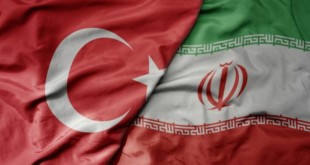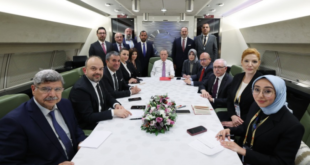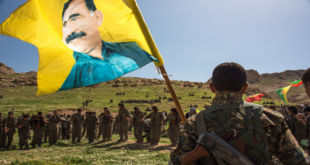Turkey and Armenia plan to sign a deal to end a century of hostility stemming from the World War One mass killing of Armenians by Ottoman forces although it could fall prey to nationalists further down the line.
An accord would boost U.S. ally Turkey’s diplomatic clout in the volatile South Caucasus, a transit corridor for oil and gas to the West. U.S. Secretary of State Hillary Clinton and other dignitaries will attend the signing, due at 5 p.m. (11 a.m. EDT).
But disagreements over the Ottoman killings — which Yerevan calls genocide, a term Ankara rejects — and a decades-old dispute between Turkey’s ally Azerbaijan and Armenia over the enclave of Nagorno-Karabakh hang over the settlement.
Talks between Azeri and Armenian leaders over Karabakh ended without result on Friday.
Under U.S. and EU pressure, officials from European Union candidate Turkey and former Soviet republic Armenia said they would sign the Swiss-mediated accord, which sets a timetable for restoring diplomatic ties and opening their border.
It must then be approved by their parliaments in the face of nationalist opposition and a powerful Armenian diaspora which insists Turkey acknowledge the killings as genocide.
“I hope very much that the process of ratification will be done very rapidly and so the implementation of the protocols can be done also very rapidly,” European Union foreign policy chief Javier Solana told reporters in Zurich on Saturday.
But a senior U.S. State Department official warned against expecting a speedy ratification and said U.S. President Barack Obama had called the Armenian president recently.
“There is a real debate in both countries and there is opposition in both countries, so nobody should think that this is an automatic process, but the signature of the governments is also their commitment to try to get it done, and that’s what will be expected of them,” he told reporters.
The official said Washington had a “very strong interest” in promoting peace and stability in the region.
French Foreign Minister Bernard Kouchner said the sides would have to work on its implementation, but said he hoped the border could be re-opened before the end of the year.
HURDLES TO COME
Turkey cut ties and shut its border with Armenia in 1993 in support of Turkic-speaking Azerbaijan which was then fighting a losing battle against Armenian separatists in Karabakh.
Ties between Muslim Turkey and Christian Armenia are also strained by what Armenian and many Western historians say was the mass deportation and deliberate killing of up to 1.5 million Armenians by the Ottoman Empire during World War One.
Turkey rejects the term genocide, saying Armenians were among many thousands killed in the chaos as the Ottoman Empire fought Russian, British, French and Greek armies and tried to put down an Arab revolt before imploding under the strain.
Although landlocked Armenia stands to make big gains, opening its impoverished economy to trade and investment, Armenia’s leader Serzh Sarksyan faces protests at home and from the huge Armenian diaspora, which sees the thaw with suspicion.
Armenians demand that Turkey acknowledges the 1915 killings as genocide, a defining element in Armenian national identity.
About 10,000 people rallied in Yerevan on Friday.
In a televised address on Saturday, Sarksyan said “there was no alternative to establishing relations with Turkey without preconditions,” a reference to Yerevan’s insistence normalization with Turkey and Karabakh are separate issues.
He also said: “Any relations with Turkey cannot call into question that genocide was committed against the Armenian people. This should be recognized and condemned by humankind.”
Turkey and Armenia will set up a commission of international experts to study the events under the deal, to be signed by Turkey’s Foreign Minister Ahmet Davutoglu and his Armenian counterpart Edward Nalbandian.
Nationalist lawmakers in Turkey have pledged to vote against the accord, and Prime Minister Tayyip Erdogan said earlier this year he would not open the border until Yerevan ended what he called its occupation of Turkey’s ally Azerbaijan.
 Eurasia Press & News
Eurasia Press & News



